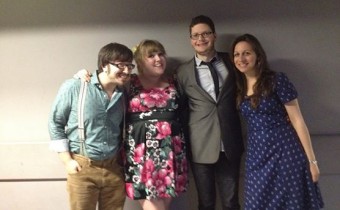Life after the cuts – roundtable discussions at Association of Festival Organisers’ conference
Last week, I headed to the Association of Festival Organisers’ conference, charged with facilitating a roundtable discussion on life after the cuts. Conference organiser and AFO chief, Steve Heap’s, brief was clear. “You’re not here to pretend it’s all going to be fine…We want you to give delegates some pointers on how to manage the changes they’re facing as a result of likely or already announced cuts, and on what the latest funding news is,” he said.
I duly put together some possible options or pointers that festivals might find it useful to think about, carefully packed my copy of the new Arts Council England bestseller Achieving Great Art for Everyone and convened a discussion on a rainy Sunday morning. What followed was a lively hour-long discussion, focused on issues raised as important by those around the table, and on sharing with each other the huge amount of experience there was amongst those present. Tips on income generation shared across the table ranged from festivals joining their local chambers of commerce to positioning their festival with local businesses as a family friendly alternative to the annual panto outing for employees and their families – via discussions around merchandising, campsite fees, friends schemes, street collections, Gift Aid, sponsorship and funding! Thanks are due to all who took part, for being so generous with their knowledge.
Some of what I prepared came up in what delegates wanted to talk about, and some didn’t, and I promised to circulate my notes to them and to other conference delegates. So, here they are: AFO Life After the Cuts. They’re not intended to be definitive, but instead were put together to stimulate discussion between the festival organisers at the conference at what is a difficult time for many, given cuts to local authority (especially) and Arts Council funding.
Please do have a read, and please do add your comments and thoughts – there’s a wealth of experience and knowledge across the sector, and our sharing this with each other is key to our sector’s sustainability.



